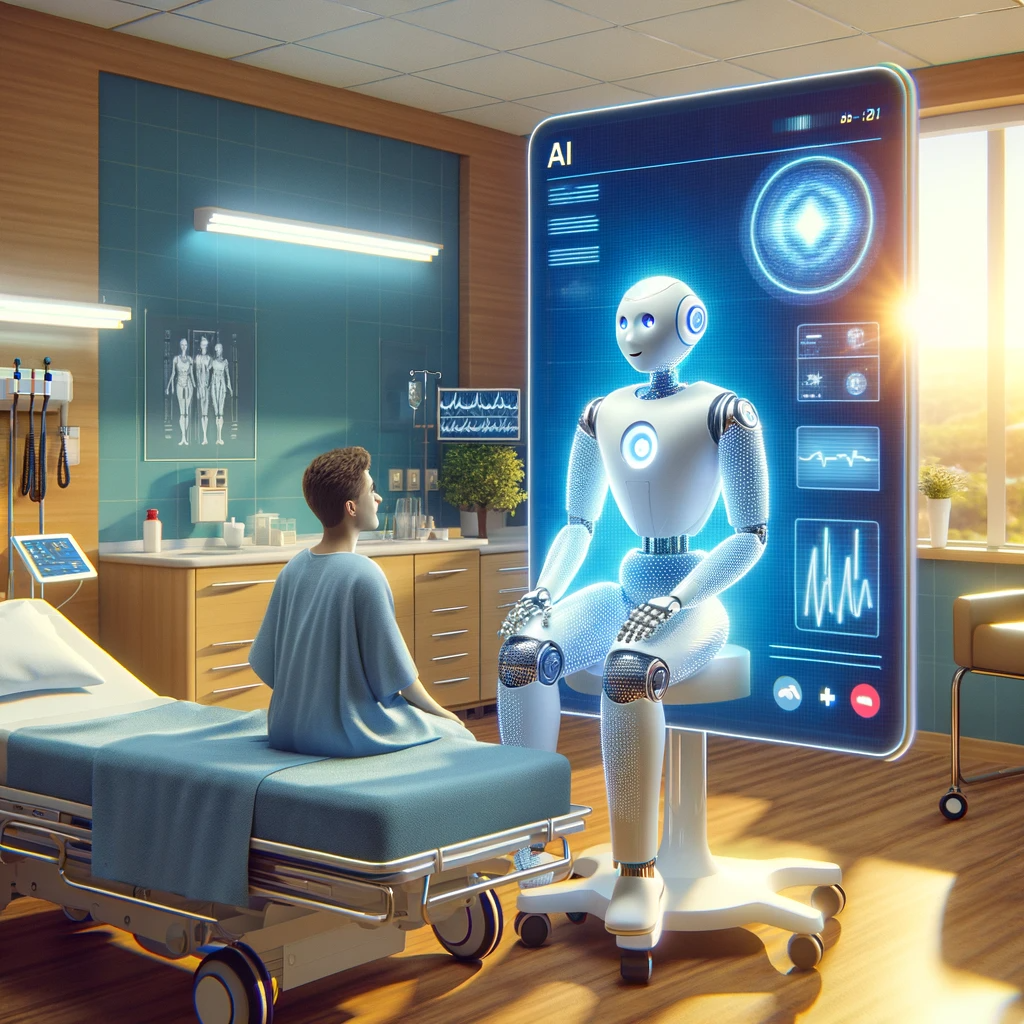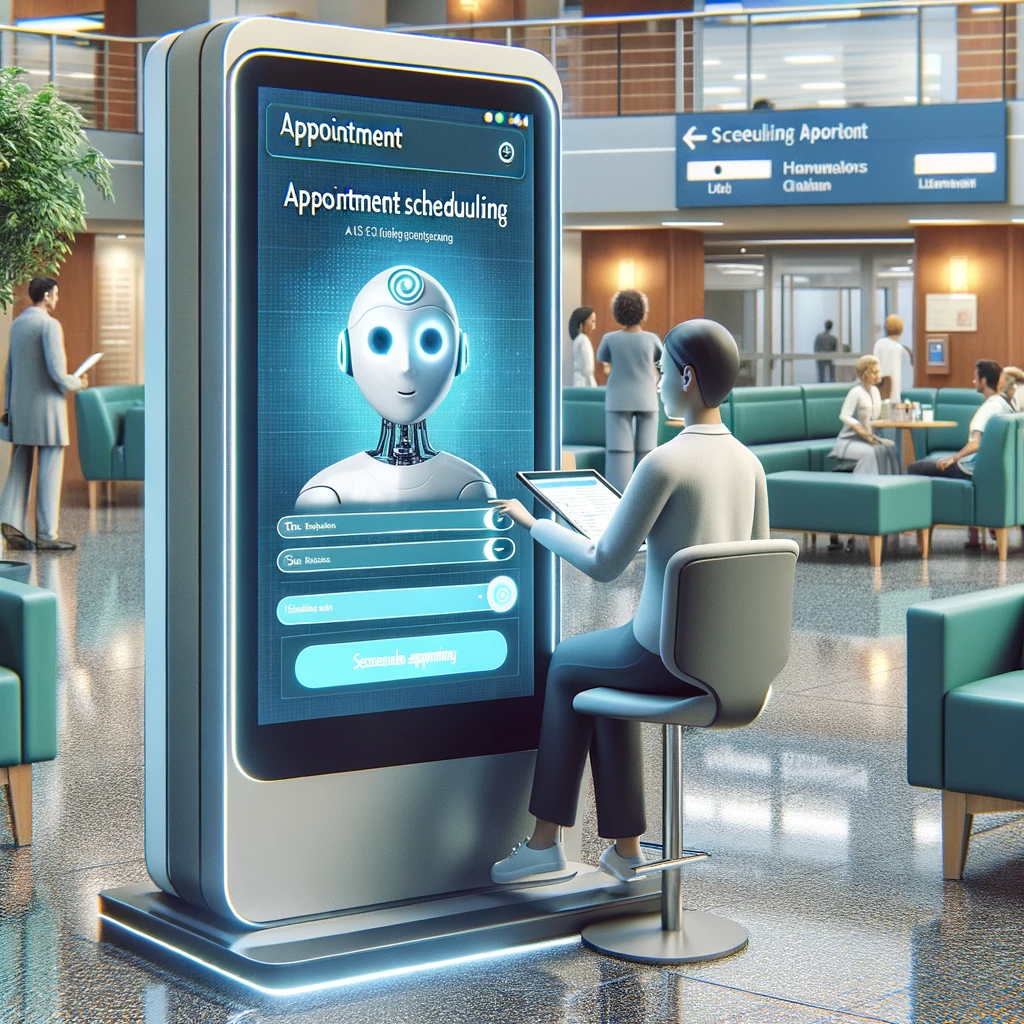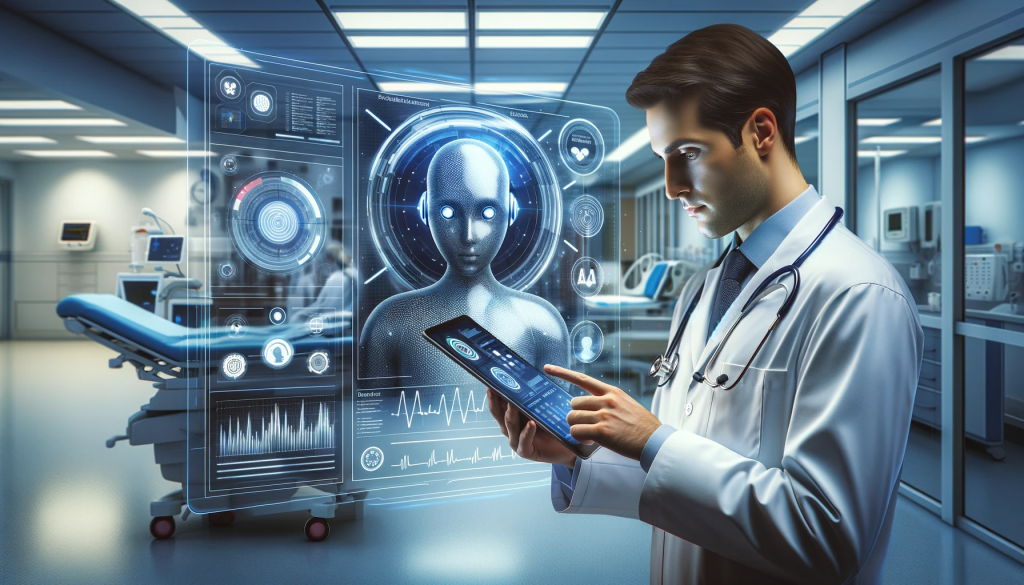Artificial Intelligence (AI) has made significant strides in transforming various industries, and healthcare is no exception. Among the plethora of AI applications in healthcare, AI chatbots stand out as a game-changing technology that is revolutionizing patient care.
This article explores how AI chatbots are enhancing patient interaction, streamlining appointment scheduling, and delivering medical information in the healthcare industry.
Using AI Chatbots in Healthcare

Get info on using an AI Assistant in your Medical Office
Key Takeaways
The 3 main takeaways about AI in healthcare from this article:
1. AI chatbots are revolutionizing patient interaction in healthcare by providing intelligent symptom assessment, comprehensive health information, and emotional support for mental health challenges, empowering patients with knowledge and resources to manage their health effectively.
2. AI chatbots enhance appointment scheduling efficiency by offering 24/7 accessibility, sending automated reminders, and enabling seamless rescheduling or cancellation, reducing no-shows and optimizing clinic operations.
3. AI chatbots serve as reliable sources of medical information, providing detailed medication information, educating patients about treatment options, and delivering personalized health education content, promoting informed decision-making, medication adherence, and healthy lifestyle choices.
1. Patient Interaction:
AI chatbots in healthcare have become indispensable tools for optimizing patient interaction. These chatbots, empowered by Natural Language Processing (NLP), engage in natural conversations with patients, comprehending their queries and providing insightful responses with accuracy. Some people are still wondering, “What is a AI chatbot?”
Key applications of AI chatbots in patient interaction include:
a) Intelligent Symptom Assessment: Chatbots leverage advanced algorithms to assess patients’ symptoms, offering preliminary insights into potential health concerns. They guide patients toward appropriate actions, such as seeking further medical attention or adopting self-care measures.
b) Comprehensive Health Information: Chatbots provide patients with easy access to a vast repository of health information. They offer detailed explanations of diseases, treatment options, and lifestyle recommendations, empowering patients with knowledge to make informed decisions about their health.
c) Mental Health Support: Chatbots serve as virtual counselors, offering emotional support and guidance to patients battling mental health challenges. They promote well-being and mental resilience by providing coping strategies and connecting patients with relevant resources.
2. Appointment Scheduling:

AI chatbots in healthcare play a vital role in enhancing the efficiency of appointment scheduling. They automate the process, allowing patients to book appointments conveniently and healthcare providers to allocate time effectively:
a) 24/7 Accessibility: Chatbots are available round-the-clock, enabling patients to schedule appointments at their convenience, regardless of time or location.
b) Intelligent Appointment Reminders: Chatbots send automated appointment reminders to patients, reducing no-shows and optimizing clinic operations. These reminders can be tailored to patient preferences, such as text messages, emails, or phone calls.
c) Seamless Rescheduling and Cancellation: Chatbots facilitate hassle-free rescheduling or cancellation of appointments. They provide flexibility to both patients and healthcare providers, ensuring efficient management of schedules.
3. Medical Information Delivery:

AI chatbots in healthcare have emerged as reliable sources of medical information, empowering patients to take charge of their health:
a) Medication Information: Chatbots provide detailed information about medications, including dosages, side effects, and interactions with other drugs. They assist patients in understanding their medication regimens and avoiding potential adverse reactions.
b) Treatment Options: Chatbots educate patients about various treatment options, explaining their benefits, risks, and potential outcomes. This empowers patients to participate actively in decision-making regarding their healthcare.
c) Personalized Health Education: Chatbots deliver tailored health education content based on patients’ needs and preferences. They promote healthy lifestyle choices, preventive care measures, and self-management strategies, contributing to improved overall well-being.
AI chatbots are transforming patient care in healthcare by enhancing patient interaction, streamlining appointment scheduling, and providing comprehensive medical information. These virtual assistants offer convenience, efficiency, and personalized care, improving patient engagement and healthcare outcomes.
As AI technology continues to advance, chatbots are poised to play an increasingly pivotal role in revolutionizing healthcare delivery, driving better patient experiences and fostering a future of healthier populations. Who knows what holds the future of AI chatbots.
